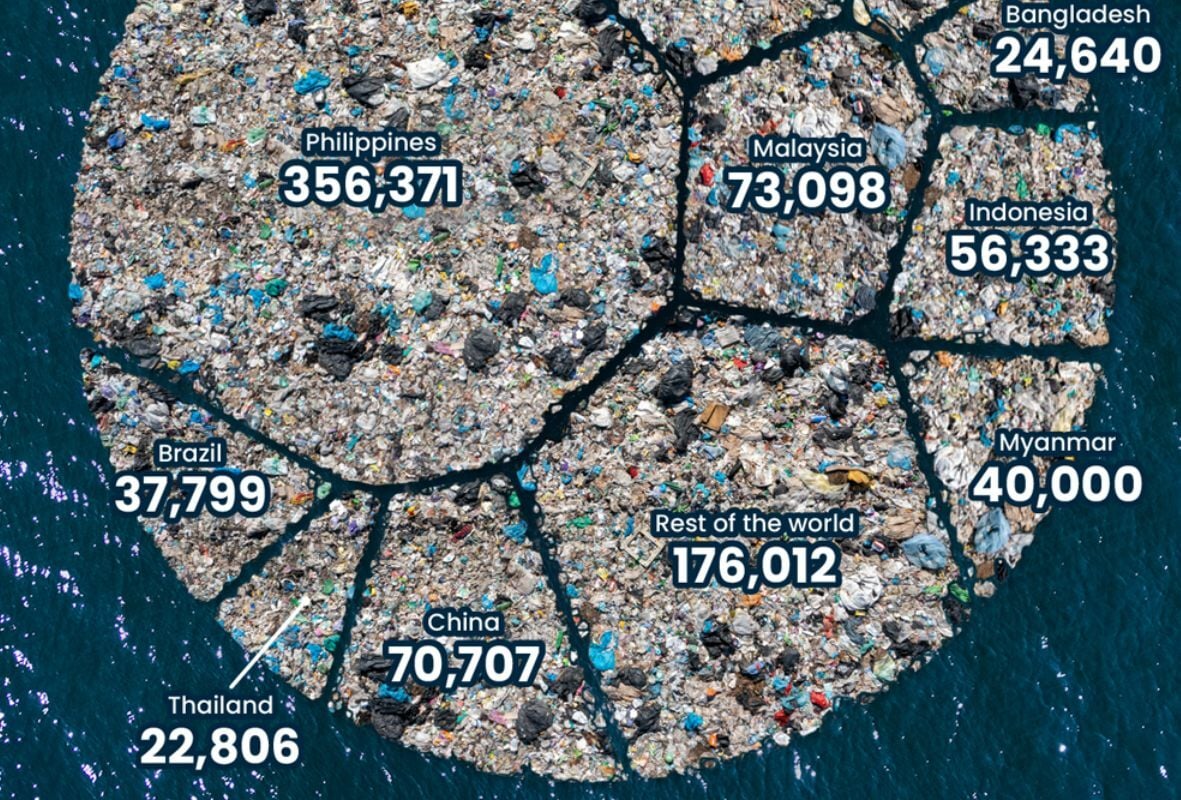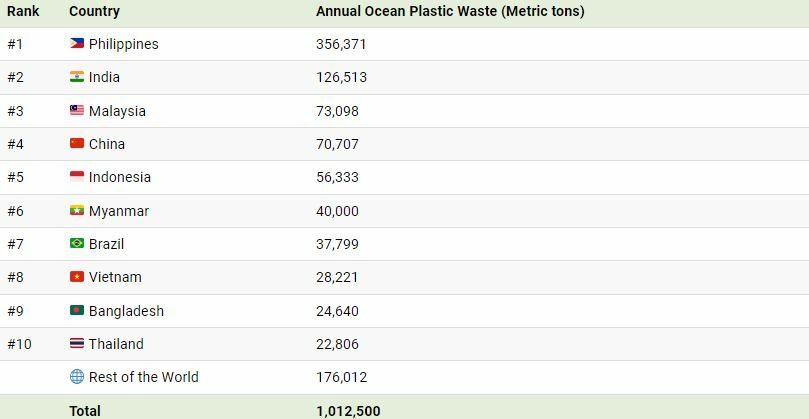Graphic shows Thailand in top 10 countries with most ocean plastic waste

A new graphic shows that Asian countries, including Thailand, are among the top ocean plastic polluters due to mismanaged waste. The graphic by Louis Lugas Wicaksono is based on data from a 2021 research paper by Dutch academic Lourens JJ Meijer.
The graphic shows a pie chart made up of plastic waste, labelling each country’s amount of ocean plastic waste in metric tonnes. Surrounding the circle of waste is the ocean.
The countries with the most ocean plastic waste were ranked on a list, with each country’s number of metric tonnes of annual ocean plastic waste.

Over 75% of the accumulated plastic in the ocean is reported to come from mismanaged waste in the nine Asian countries on the list. The only non-Asian country to make it to this top 10 list is Brazil.
Most of the plastic waste comes from litter in parks, beaches, or along the storm drains lining streets. These bits of plastic are then carried into drains, streams, and rivers by wind and rainwater runoff. The rivers then turn into plastic highways, transporting the plastic to the oceans. Lots of ocean plastic also comes from discarded fishing nets.
In 2021, the Thailand Development Research Institute (TDRI) said that Thailand had an average of 1.03 tonnes of mismanaged waste each year and that nearly half of it (0.31%) flows into the sea. Plastics take between 20 and 500 years to decompose.
To combat plastic pollution, Thailand has implemented measures such as a ban on single-use plastic bags in major stores, public awareness campaigns, and promoting the use of reusable bags.
Last week, it was reported that Thailand‘s use of plastic bags plunged by over 148,000 tonnes in about three years. The Pollution Control Department (PCD) launched campaigns in 2018 to cut the use of single-use plastic and plastic shopping bags, in cooperation with the Environmental Quality Promotion Department (EQPD).
The campaign aimed to reduce the use of plastic bags by 43% by 2021. According to an analysis by Regional Knowledge Centre for Marine Plastic Debris, the campaign succeeded in reducing the use of plastic bags by 148,699 tonnes at the end of that year.
The Pollution Control Department (PCD)’s director-general Pinsak Suraswadi said the campaigns to reduce plastic bag use are being carried out under the roadmap from 2018 to 2030 with two major goals: replacing plastic bags with environmentally friendly containers, and reducing plastic garbage by 100% by 2027.
The research shown in the new graphic highlights the need for more action to address plastic pollution, including better waste management systems, stricter regulations, and increased public education.
Latest Thailand News
Follow The Thaiger on Google News:



























